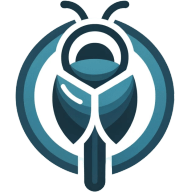3 Benefits of Implementing New Testing Processes Or Methodologies
In the ever-evolving world of technological development, staying ahead with the latest testing processes is crucial. This article delves into the benefits of implementing new testing methodologies, offering insights from renowned experts in the field. Discover how strategies like Behavior-Driven Development (BDD), automated regression testing, and AI-powered adaptive testing can revolutionize the way teams collaborate and enhance testing efficiency and accuracy.
- Promote Cross-Functional Collaboration with BDD
- Automate Regression Testing for Efficiency
- Use AI-Powered Adaptive Testing for Accuracy
Promote Cross-Functional Collaboration with BDD
In a project where communication breakdowns between developers, testers, and business stakeholders were leading to a lot of miscommunications and missed releases, I once used Cucumber to establish Behavior-Driven Development (BDD). By implementing BDD, we promoted cross-functional teams to work together to create test scenarios that clearly and concisely explained application behavior. This change not only made the requirements clearer, but it also made it possible to identify problems early in the development process. Consequently, we observed a 30% decrease in post-release issues and noticeably quicker feature delivery turnaround times. In the end, the method improved customer satisfaction and product quality by fostering better collaboration, streamlining testing, and ensuring that developers, testers, and stakeholders were all in agreement.

Automate Regression Testing for Efficiency
I once implemented automated regression testing in our development pipeline, and it completely transformed our workflow.
Before, our team relied heavily on manual testing, which was slow and prone to human error. Bugs kept slipping through, and releases were constantly delayed. I introduced a Selenium-based automation framework that ran overnight test suites, flagging issues before developers even started their day.
The benefits were immediate—faster release cycles, fewer production bugs, and a 40% reduction in testing time. More importantly, it freed up our QA team to focus on exploratory and edge-case testing instead of repetitive tasks. That single change made our entire development process more efficient and reliable.

Use AI-Powered Adaptive Testing for Accuracy
At Testlify, we introduced AI-powered adaptive testing to improve candidate evaluation accuracy. Instead of using static assessments, we implemented a dynamic system where question difficulty adjusts based on a candidate's previous answers.
The biggest benefit was better skill differentiation-highly skilled candidates progressed to more challenging questions, while those needing improvement received questions suited to their level. This reduced test fatigue and improved engagement.
Additionally, the new process cut down hiring time by filtering top candidates faster. Our clients saw a 30% increase in hiring efficiency because recruiters could focus on the best-fit candidates early in the process.
We also implemented advanced proctoring features, ensuring fairness and eliminating cheating risks. The result? More reliable hiring decisions, a smoother candidate experience, and improved recruitment outcomes.


